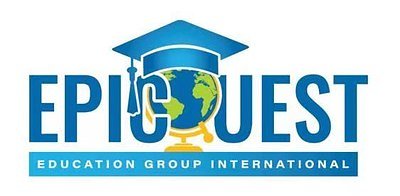
EpicQuest’s Ecuador Partnership: A New Model for Affordable US Education?
EpicQuest Education’s deal with Ecuadorian institutions aims to broaden access to US degrees. But is this global expansion a sustainable strategy, and what does it mean for the future of international education?
EpicQuest’s Ecuador Partnership: A New Model for Affordable US Education?
By Charles Rivera
EpicQuest Education is betting on Ecuador as a key part of its international expansion strategy. The company recently announced a partnership with institutions in Ecuador to offer US-accredited degree programs at a potentially lower cost to students. While the deal promises to broaden access to higher education, questions remain about the long-term sustainability of this model and its implications for the evolving landscape of international education.
Expanding Access, Lowering Costs
The collaboration centers around a “Transfer Articulation Agreement,” allowing Ecuadorian students to complete a portion of their degree at local institutions before transferring credits to complete their bachelor's at Davis University, an EpicQuest-owned institution. This approach significantly reduces the overall cost of pursuing a US degree, addressing a major barrier for many students in developing nations.
“The goal is to make a US education accessible to a wider range of students,” said an anonymous source familiar with the deal. “By allowing students to complete foundational coursework locally, we can significantly lower the financial burden.”
A Strategic Move for EpicQuest
EpicQuest has been actively seeking opportunities to diversify its revenue streams and expand its international footprint. This partnership aligns with that strategy, offering a potential pathway to tap into a new market and attract students who might not otherwise be able to afford a US education. Financial reports indicate the company has placed significant emphasis on international growth, and this deal is viewed internally as a key component of that effort.
However, expansion isn't without risk. A source close to the company noted that successful international operations require navigating complex regulatory environments, cultural differences, and logistical challenges. “You can’t simply replicate a US model in another country and expect it to work,” the source cautioned.
The Accreditation Question
A crucial element of the program's success hinges on maintaining the accreditation standards of Davis University. While Davis University currently holds accreditation from the Higher Learning Commission (HLC), a key area of scrutiny is the accreditation status of the Associate of Arts degree—a critical component of the transfer pathway. Research conducted for this article revealed that while Davis University is broadly accredited, there is no specific public mention of pending accreditation for the Associate of Arts program.
“Maintaining accreditation is paramount,” stated an anonymous higher education expert. “Any disruption in accreditation would immediately undermine the program's credibility and jeopardize the students' ability to transfer credits.”
EpicQuest has not yet publicly addressed specific concerns regarding the Associate of Arts degree accreditation, but the company assures that all programs meet rigorous standards and are continuously reviewed to ensure compliance.
A Growing Trend in Global Education
The EpicQuest-Ecuador partnership is part of a broader trend of US universities seeking to expand their reach through international collaborations. Several institutions are exploring similar models to offer affordable degrees to students in developing nations. This is driven, in part, by increasing tuition costs in the US, making higher education increasingly inaccessible for domestic and international students alike.
“We’re seeing a growing recognition that the traditional model of US higher education is unsustainable,” explained an anonymous education policy analyst. “Universities are under pressure to find new ways to generate revenue, expand their student base, and fulfill their mission of providing access to education.”
However, this trend also raises concerns about quality control and the potential for “degree mills” to exploit the growing demand for affordable degrees. Maintaining academic standards and ensuring that students receive a quality education remain critical challenges.
Potential Benefits for Ecuador
The partnership also promises benefits for Ecuador. By providing access to US-accredited degrees, the program could help to enhance the skills and knowledge of the Ecuadorian workforce. This could, in turn, contribute to economic development and improve the country's competitiveness in the global economy.
“This partnership could be a game-changer for Ecuadorian students,” said an anonymous source within the Ecuadorian Ministry of Education. “It could provide them with the opportunity to pursue a world-class education without having to leave their home country.”
However, it is important to ensure that the program is accessible to students from all socioeconomic backgrounds. The cost of the program, even with the reduced tuition fees, could still be a barrier for some students.
Sustainability and the Future of International Education
The long-term sustainability of the EpicQuest-Ecuador partnership remains to be seen. Factors such as political stability, economic conditions, and regulatory changes could all impact the program's success. However, if the program can overcome these challenges, it could serve as a model for other universities seeking to expand their international reach and provide access to affordable education.
“The future of international education is likely to be characterized by greater collaboration, innovation, and a focus on affordability,” predicted the anonymous education policy analyst. “Universities that can adapt to these trends will be best positioned to succeed.”
EpicQuest's bet on Ecuador represents a bold step in that direction—one that could reshape the landscape of international education for years to come. The key will be to prioritize quality, accessibility, and sustainability to ensure that the program delivers on its promise of providing access to a world-class education for students around the globe.
